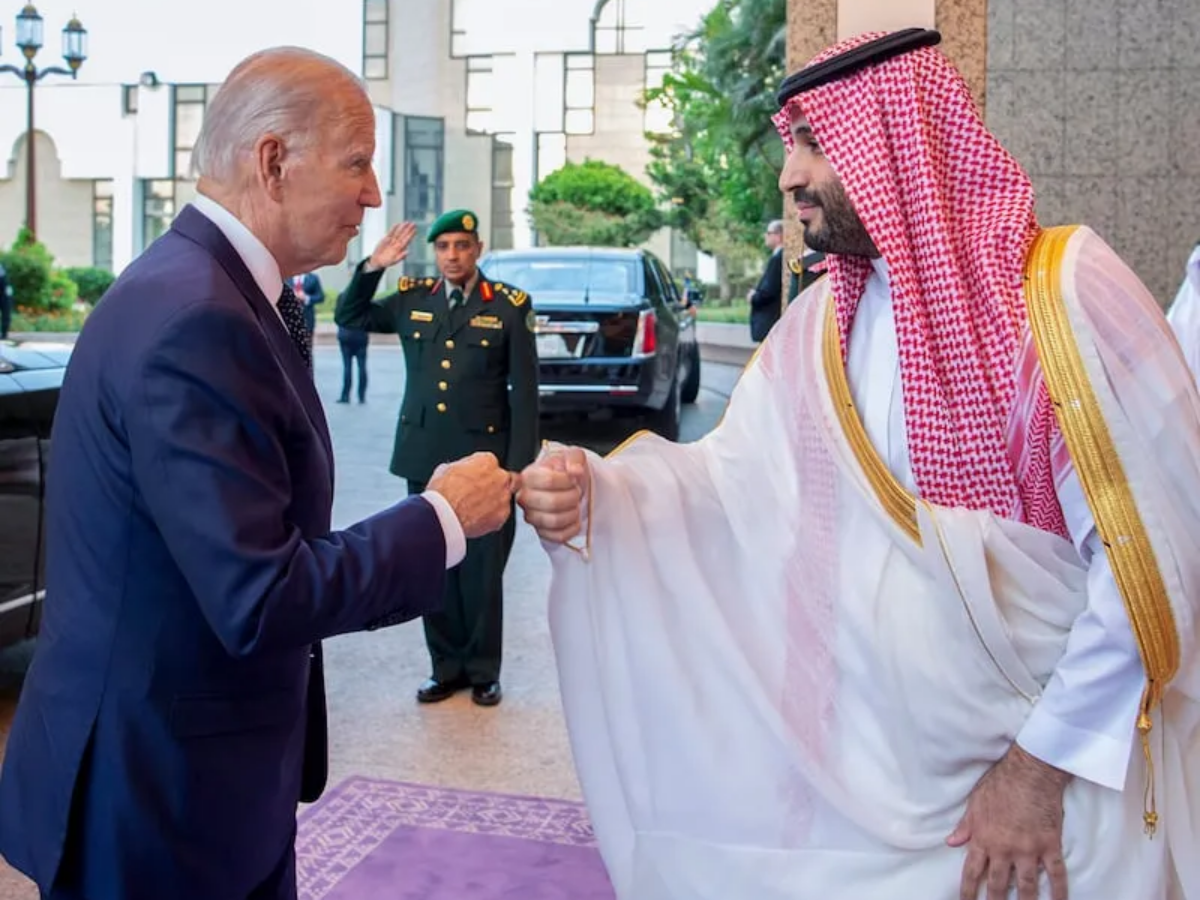TipRanks.
U.S.-Saudi Petrodollar Pact Ends after 50 Years.
June 11, 2024.
By Paul Hoffman
The 50-year-old petrodollar agreement between the U.S. and Saudi Arabia was just allowed to expire. The term “petrodollar” refers to the U.S. dollar’s role as the currency used for crude oil transactions on the world market. This arrangement has its roots in the 1970s when the United States and Saudi Arabia struck a deal shortly after the U.S. went off the gold standard that would go on to have far-reaching consequences for the global economy. In the history of global finance, few agreements have wielded as many benefits as the petrodollar pact did for the U.S. economy.
A Boon to U.S. Bonds
The petrodollar agreement, formalized after the 1973 oil crisis, stipulated that Saudi Arabia would price its oil exports exclusively in U.S. dollars and invest its surplus oil revenues in U.S. Treasury bonds. In return, the U.S. provided military support and protection to the kingdom.
This arrangement was a win-win situation for both; the U.S. gained a stable source of oil and a captive market for its debt, while Saudi Arabia secured its economic and overall security.
Status as the Reserve Currency
Oil being denominated in U.S. dollars alone has significance beyond the categories of oil and finance. By mandating that oil be sold in U.S. dollars (DXY), the agreement elevated the dollar’s status as the world’s reserve currency. This, in turn, has profoundly impacted the U.S. economy. The global demand for dollars to purchase oil has helped to keep the currency strong, making imports relatively cheap for American consumers.
Additionally, the influx of foreign capital into U.S. Treasury bonds has supported low interest rates and a robust bond market.
In his recent book, Bonfire of the Sanities (December 2023), bestselling author and investment manager David Wright argues the strength of the dollar is a key factor behind America’s high standard of living. Wright declares that the reason why people in the U.S. enjoy “as high of a standard of living as we do is because the dollar is strong.” Wright then explains this strength is partly because of faith in our economy “and because energy can’t be bought without U.S. dollars.”
Potential to Disrupt the Global Financial Order
However, the petrodollar’s dominance may be facing its most significant challenge yet. The agreement between the U.S. and Saudi Arabia expired on June 9, 2024. This expiration has far-reaching implications, as it has the potential to disrupt the global financial order.
The shifting power dynamics in the oil market are a critical factor in this development. The rise of alternative energy sources, such as renewables and natural gas, has reduced the world’s reliance on oil. Furthermore, the emergence of new oil-producing nations, such as Brazil and Canada, has challenged the traditional dominance of the Middle East.
U.S. Dollar’s Future
The petrodollar’s expiration could weaken the U.S. dollar and, by extension, the U.S. financial markets. If oil were to be priced in a currency other than the dollar, it could lead to a decline in global demand for the greenback. This, in turn, could result in higher inflation, higher interest rates, and a weaker bond market in the United States.
Key Takeaway – A Significant Shift in Global Power Dynamics
The expiration of the petrodollar agreement represents a significant shift in global power dynamics. It highlights the growing influence of emerging economies and the changing energy landscape. While the full implications of this shift remain to be seen, investors should at least be aware that on a macro level, the global financial order is entering a new era. The U.S. dollar’s dominance is no longer guaranteed.
The Canadian ETF Market, Retail and Institutional Usage of ETFs, Liquidity, Execution, and Trading
The views and opinions expressed herein are the views and opinions of the author and do not necessarily reflect those of Nasdaq, Inc.


